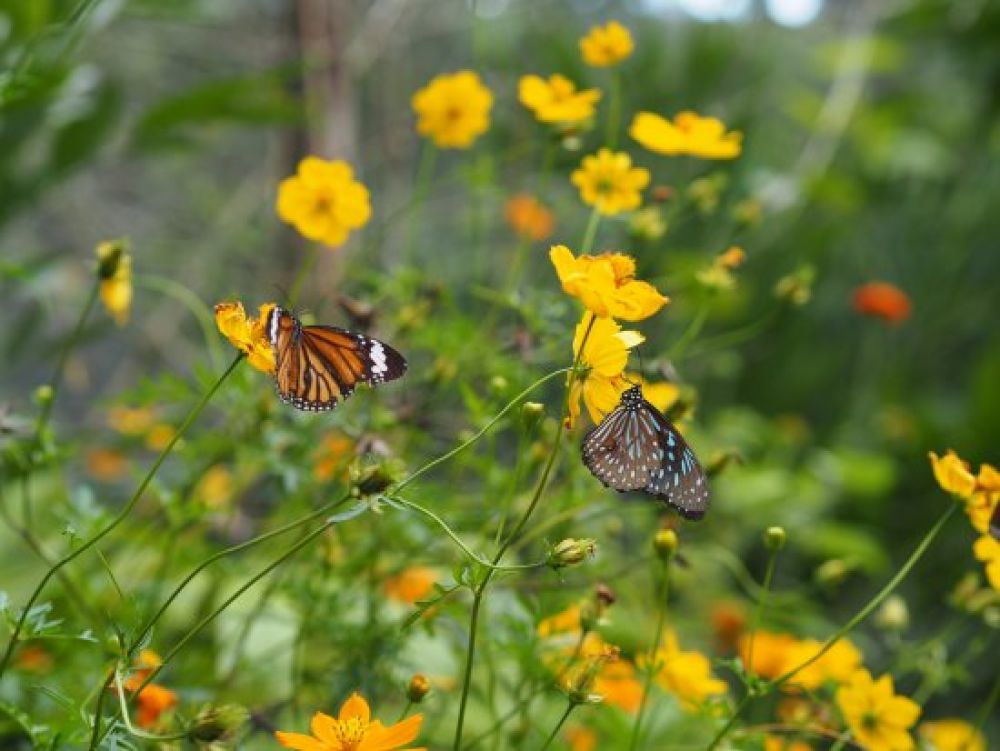

The Kep Butterfly Farm is a relatively recent addition to the attractions in Kep, Cambodia, a small coastal town with a rich history that dates back to the French colonial era. French colonists established Kep in the early 20th century as a luxurious seaside retreat, illustrating its legacy with remnants of old villas scattered across the landscape. After independence in the 1950s, Kep continued to flourish as an elite Cambodian vacation destination until the 1970s when the upheaval of the Khmer Rouge regime brought tourism to a halt.
In the years following the Khmer Rouge period, Cambodia and Kep slowly began to rebuild themselves. Tourism in Kep started to pick up pace again in the 1990s, with visitors drawn to its serene beaches, national parks, and the famous Kep crab market. Amidst this resurgence, the Kep Butterfly Farm emerged as an ecotourism destination, offering a tranquil experience for tourists interested in Cambodia’s natural beauty and biodiversity.
The butterfly farm, nestled in the lush greenery, was established to promote conservation and education. Visitors to the Kep Butterfly Farm can walk through a netted garden filled with numerous species of colorful butterflies, all native to Cambodia. The farm not only serves as a tourist attraction but also plays a role in preserving the local butterfly species and their habitat.
While there is no specific date of establishment readily available for the Kep Butterfly Farm, it fits into the broader narrative of Kep's recent move towards sustainable tourism and conservation efforts. The farm contributes to the local economy by drawing visitors and providing a unique learning environment for understanding entomology and the importance of conserving natural ecosystems.
Latest trends in tourism in Kep, including the butterfly farm, emphasize sustainability and ecotourism. Travelers are increasingly looking for authentic, nature-based experiences that allow them to connect with local ecosystems without contributing to their degradation. Ecotourism initiatives like the Kep Butterfly Farm cater to this demand by offering educational tours and emphasizing the conservation of native species.
Responsible tourism practices are also a significant trend, with businesses and visitors alike becoming more conscious of their environmental impact. Efforts are being made by local authorities and businesses to maintain the delicate balance between development and preserving Kep's natural and cultural heritage.
In conclusion, the Kep Butterfly Farm symbolizes a shift in Cambodian tourism towards conservation-focused attractions. It is a testament to Kep’s broader commitment to protect its unique environment while offering enriching experiences for tourists. This aligns with the global movement towards more ethical and eco-friendly travel, ensuring that tourism supports the preservation of natural wonders for future generations.